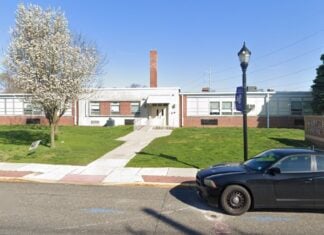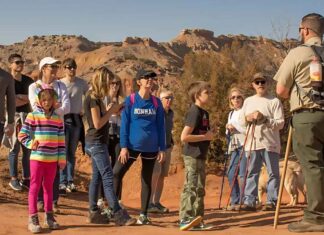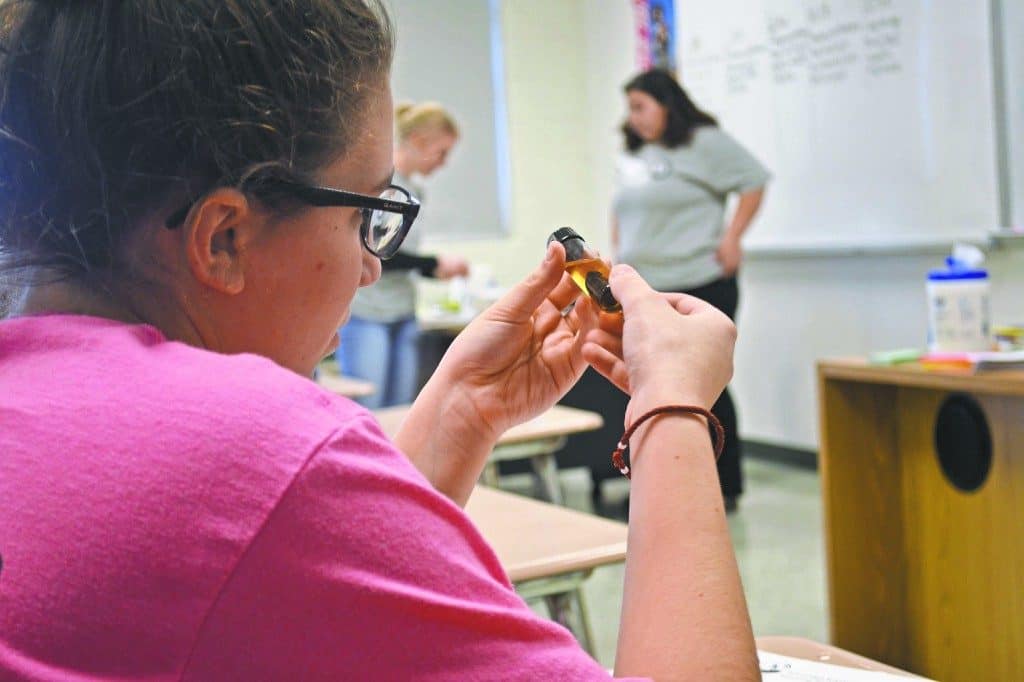
Seneca alumnae and AmeriCorps Watershed Ambassador Isabella Castiglioni prepares Environmental Club students for a hands-on volunteer stream assessment
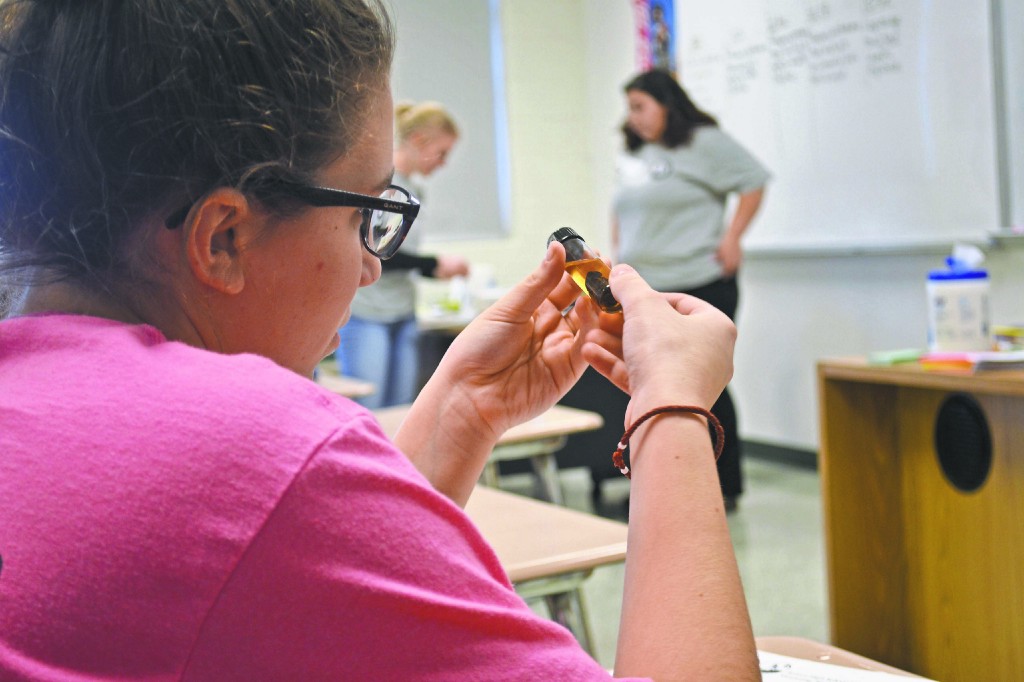
Seneca High School alumnae Isabella Castiglioni, an AmeriCorps Watershed ambassador, held the first of two training sessions with Seneca’s Environmental Club on Tuesday, Feb. 13.
Castiglioni, who is responsible for the Rancocas Creek Watershed, is training the students to sample local streams and study the bugs to indicate the quality of the water.
The full stream assessments entail students going to the streams, sampling for bugs, identifying them, filling out data sheets to turn into the Department of Environmental Protection, and getting a rating on how the water quality is in that particular stream, according to Castiglioni.
“It’s something that they don’t get to do every day, and everyone learns differently. So for some kids, it might be finally using their hands and interacting with it that gets the lesson to click, and gets them to understand something. But also, it’s just fun and interesting, so that in itself can be cool,” Castiglioni said. “It’s that combination of more effective learning, and then just the fun of it.”
Castiglioni conducted an informational workshop at the school with the help of two of her colleagues, followed by a hands-on activity that allowed students to identify bug samples using a dichotomous key. This would prepare students for the volunteer monitoring program they’ll be taking part in this upcoming spring.
“It’s the DEP’s way of doing stewardship — they want to get people out there and involved with the environment, they want to raise awareness of different problems that the watersheds might be facing, and the best way to do that is through getting people actively involved,” said Castiglioni, who has been a Rancocas Creek Watershed ambassador since September.
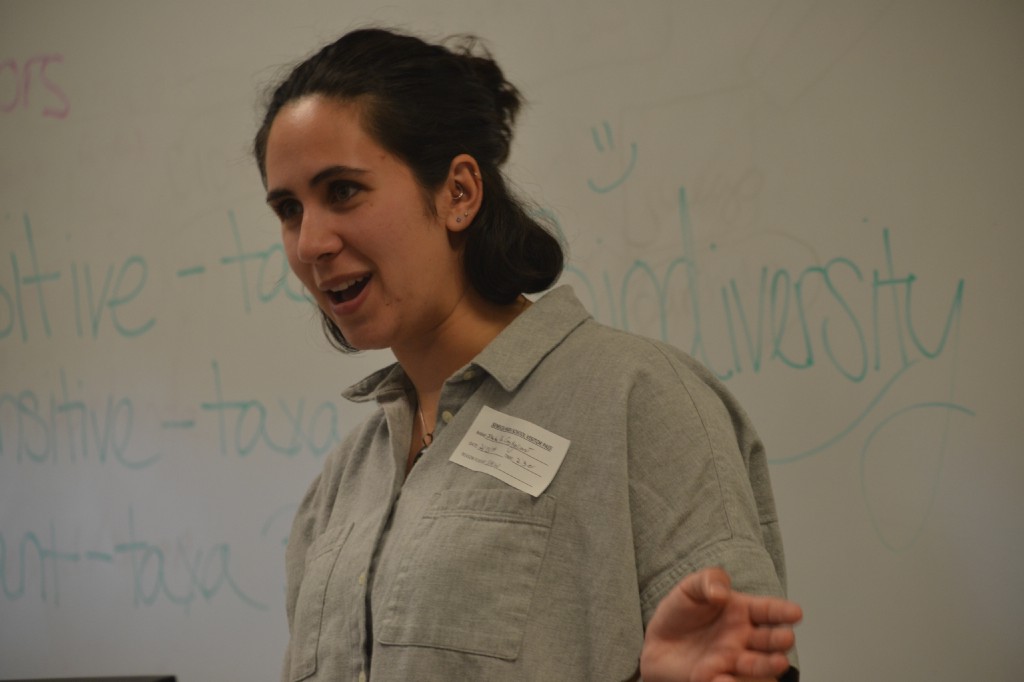
“We thought that would be awesome to get on board [with], as a way to start our work with the environment, because we want to get more involved with how we can help the local environment,” Environmental Club advisor Elaine West said. “So, this was a good stepping stone for sure.”
During the workshop, Castiglioni also explained to students the benefits of working with AmeriCorps, and the benefits of her particular program.
“We’re supposed to act as a bit of a liaison between the DEP and the communities that they serve, because sometimes it can be hard for them to get out into the community and do some of that like good will, just educational stuff,” Castiglioni explained. “A lot of times they’re stuck in regulating, and that’s important — but it’s also important to get out here and do this kind of stuff, too, and that’s where we come in.”
Castiglioni provided examples of some things that are harmful to the waterways — including pet waste, sediment and even rock salt — and examples of initiatives the community could take to prevent pollution in the waterways, such as smaller-scale farming and responsible construction.
“I’ve always been really interested in preserving the environment, and I know a lot of my friends aren’t super interested in it, so just seeing the lack of caring that a lot of people have makes me want to participate more and try to help out wherever I can,” said senior Sheridan Smith, a member of Seneca’s Environmental Club. “It just kind of motivates me to do more, ’cause other people don’t do enough.”
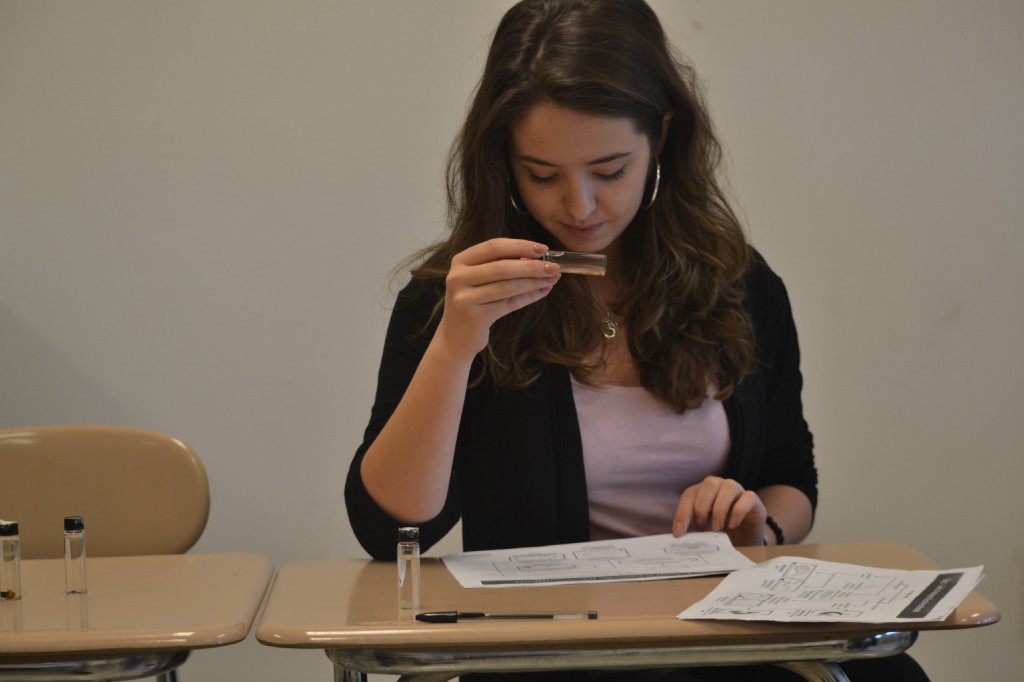
West noted the importance of her students getting involved at a young age.
“The more they’re aware at this age, as they become adults, they’ll be so pro-looking out for the environment, and not littering and not polluting — and they’ll encourage their children, etc., through generations — so that we can better our environment,” West said.
West said although this is the first hands-on project they’re taking part in, they plan to get on board with many more in the future.





